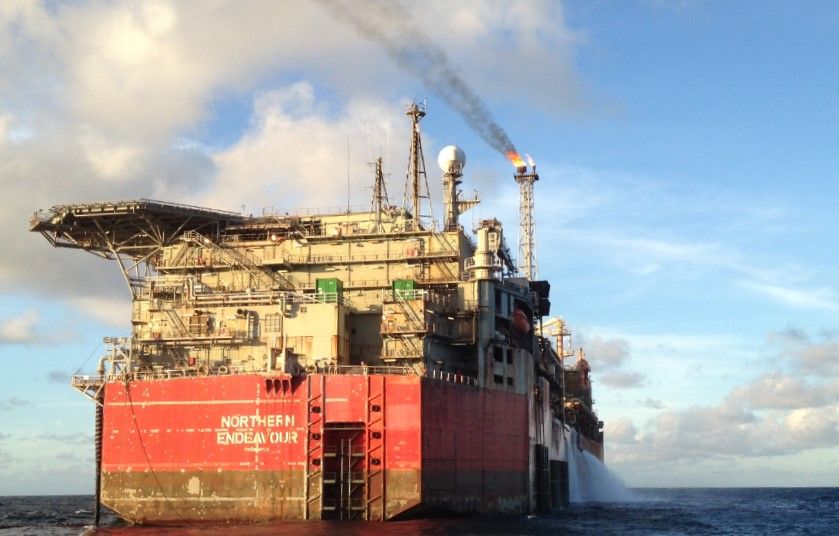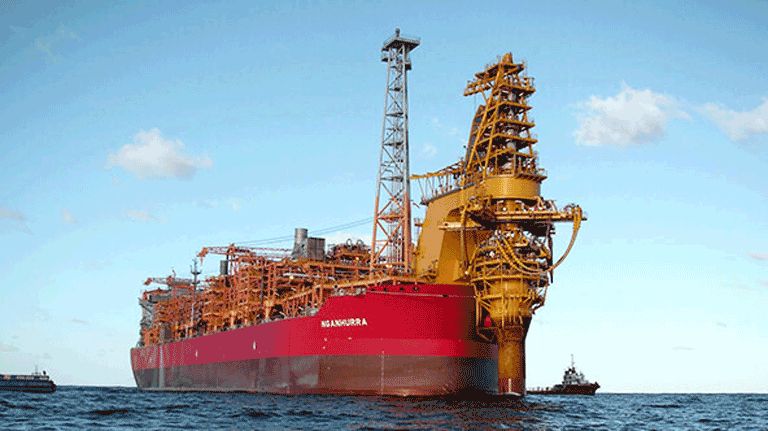Westport bill may jump $1b to keep desalination plant working
Longer pipelines into Cockburn Sound must be built before port construction begins or 15 per cent of Perth's water supply will be lost.
Australia's oil and gas industry has lost the fight not to bear the full cost of cleaning up after an oil vessel in the Timor Sea with a bankrupt owner.

Australia's oil and gas producers will pay 48c for every barrel of oil equivalent they produce to fully cover the Federal Government for the cost of decommissioning the Northern Endeavour.
The temporary levy will apply from July 1, 2021 and continue until the Federal Government recovers the cost to decommission the Northern Endeavor oil vessel, its wells, and other infrastructure, which has been estimated at up to $1billion.
The Department of Industry, Science, Energy and Resources issued a discussion paper last week that called for the industry's views on the details of the levy's introduction but not on its fundamentals.
The levy will not be deductible against Commonwealth taxes such as company tax, the North West Shelf royalty and the Petroleum Resources Rent Tax, increasing the financial burden of the levy.
The owner of the Northern Endeavour, Northern Oil and Gas Australia, went into liquidation in early 2020, four years after it bought the asset from Woodside.
The transaction was legal but has done enormous damage to Woodside's relationship with the Federal Government, the industry and the community.
Woodside has received widespread industry criticism for selling an ageing vessel with declining production to a new under-financed one-man company with no offshore experience.
"Let's be clear Woodside doesn't have an issue on Northern Endeavour," then Woodside chief executive Peter Coleman said after the company's annual general meeting in April.
"It was sold as an ongoing business, so I think we need to move away from that," Coleman said.
Oil and gas lobby group APPEA labelled the levy as over the top and extreme.
APPEA chief executive Andrew McConville said the levy would see a few companies footing a massive bill for a project they had never been involved in.
The major payers will include Chevron, Shell, Inpex, ExxonMobil and Woodside.
"The Government should not be washing its hands of this through a blunt instrument like a levy but working constructively and collaboratively with industry to minimise costs and explore all options," McConville said.
In mid-June APPEA president and Santos chief executive Kevin Gallagher said he struggled with the logic of "paying for someone else's asset that goes under, but I also understand the taxpayer shouldn't be asked to pay for that either."
At the time, Gallagher said a proposed levy was the start of a process and "we've got to sit down with government now and see if we can thrash out something that is workable."
Less than two weeks later, the levy is a done deal.
Santos will not be a significant payer of the levy as much of its production is onshore or, for Bayu Undan, in a zone jointly administered by Australia and Timor Leste.
Credit Suisse lead energy analysts Saul Kavonic said at the APPEA Conference in June the industry had been unable to agree on an alternative to the levy to propose to the Government.
"Here was a chance for industry to talk with a unified voice on this issue…and they stuffed it," Kavonic said.
"You can see what has happened here, there is one particular party which is probably diametrically opposed to the rest of the industry."
Many companies think only Woodside and its partner in the Northern Endeavor paying the levy would be a fairer outcome.
The petroleum sector is also divided over trailing liabilities introduced by Pitt to make sellers of assets liable, as a last resort, for decommissioning costs.
APPEA chief executive McConville has said his members do not support trailing liabilities as "it runs the risk of impacting on investment incentives and the further development of the industry."
However, McConville's president Gallagher has the opposite view.
"I support trailing liabilities always have done," Gallagher told the APPEA Conference, noting it was not APPEA's position.
"I think it's very logical and the only secure process that can protect assets from the taxpayer being exposed."
Wilderness Society corporate campaigner Jess Lerch said the levy was a good thing but called for it to be made permanent.
"We know the oil and gas industry still wants to keep its business model of selling off late-life assets, and the risk of the taxpayer picking up the tab for more Northern Endeavour's isn't going away," Lerch said.
Lerch said more oil and gas companies would fail due to the world moving away from fossil fuels and their underfunding of decommissioning liabilities.
"There's a string of ticking time bombs that will cost tens of billions of dollars to the taxpayer if these companies fold," Lerch said.
The cost of offshore decommissioning in Australia to 2050 has been estimated at $52bilion by a Federal Government-funded report.

Wilderness Society policy manager Tim Beshara said Resources Minister Keith Pitt has managed the responsibility for paying for the Northern Endeavour well.
"He could have rolled over to industry so easily on this, but to be honest, this is one issue that the industry have brought upon themselves," Beshara said.
"Keith Pitt undertaking a collective punishment approach is also a totally reasonable response in the circumstances where Woodside was simply the first to get busted for an industry-wide practice."
In the wake of the Northern Endeavour, NOPSEMA has cracked down on delays to decommissioning. The regulator now requires all wells to be plugged and abandoned within three years of the end of production and the seabed to be cleared two years after that.
The regulator has also started issuing prescription time-limited directives to operators.

Offshore oil and gas safety and environment regulator NOPSEMA today published plans from Woodside to plug and abandon 18 wells from the Enfield oil project over three years from 2022 to 2024.
The plans came after the regulator in February ordered Woodside to do the work.
NOPSEMA in May ordered Exxon Mobil to plug and abandon 180 wells and dismantle 10 platforms.
Main image: Northern Endeavour floating production storage and offloading vessel in the Timor Sea. Source: Anon.
All the info and a bit of comment on WA energy and climate every Friday